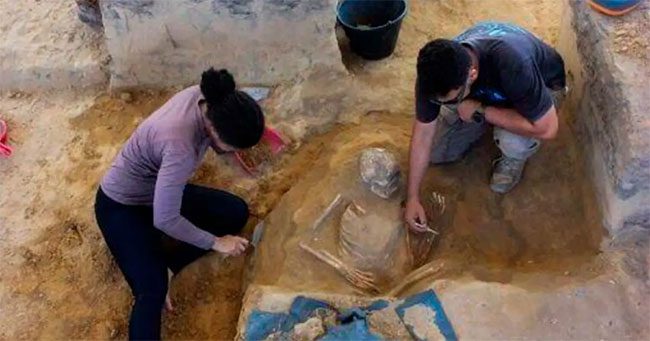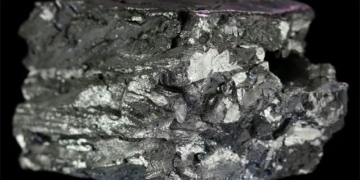A 9,000-Year-Old Archaeological Treasure Described as a Discovery That “Could Rewrite Human Settlement History in Brazil”.
According to Ancient Origins, a team of workers surveying land in the coastal city of São Luís, the capital of Maranhão state in Northeast Brazil, stumbled upon a “terrifying treasure“.
As a result, they immediately halted construction and contacted the authorities. The National Institute of Historical and Artistic Heritage (IPHAN) of Brazil took over and managed the research process.

Archaeologists excavating a set of skeletons – (Photo: IPHAN).
So far, archaeologists have excavated a total of 43 skeletons and around 100,000 artifacts. Many of the skeletons and artifacts date back as far as 9,000 years.
Archaeologist Wellington Lage, who leads the excavation, stated that this discovery could “rewrite the history of human settlement in Brazil.”
The research team has spent a total of four years digging in the 6-hectare area, locally known as Rosane’s Farm.

Artifacts being sorted – (Photo: IPHAN).
The research team is currently focused on cataloging each artifact before making a formal announcement and displaying them to the public.
These artifacts include pottery shards, shell fragments, and various other items. Although they were not treasures in their time, their 9,000-year age and historical significance have turned them into valuable antiquities.
This discovery is considered nationally significant. The artifacts and skeletons are expected to be taken to a laboratory and museum currently being constructed by the Federal University of Maranhão.
Additionally, this discovery indicates that the land of present-day Brazil has been inhabited by humans for 8,000 to 9,000 years, approximately 1,400 years earlier than previously thought.
- Thus, this could completely change the history not only of the region but of all Brazil.
- The Earth shifts, Tibet shows signs of being torn apart
- Psychological “manipulation” tips to help you persuade others
- Unraveling the mystery of 50,000 Persian warriors who vanished in an instant over 2,500 years ago


















































